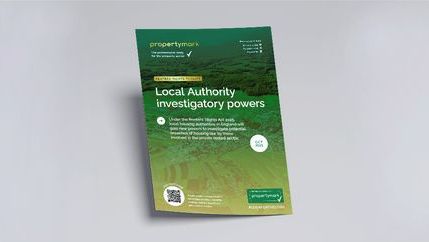
The opportunity to have a positive and open discussion of the issues demonstrates the value of Propertymark’s continued close engagement with the UK Government on the Bill, which will continue as it moves through the necessary stages in parliament before becoming law.
The Second Reading is due to take place in the House of Commons on 9 October 2024, which will allow MPs to debate the main principles of the Bill. The next step will be a Committee Stage, where the first amendments can be considered.
Consternation over periodic tenancies
The loss of fixed-term tenancies is creating the most concern and confusion among members, who were not convinced that the move would benefit either tenants or landlords. One London-based agent explained that of 30,000 tenancies her business had issued in the last 12 months, the average fixed term was 22 months, and this was driven by requests from tenants.
Clarity is needed from the UK Government on the rules for taking rent payments up front, as the current working of the Bill suggests that the maximum that can be collected will be a month’s rent. This will reduce access to rented accommodation for students (especially non-UK students), self-employed people, and pensioners, who are less likely to have regular monthly incomes or be able to secure a guarantor.
Pet protections must be thorough
The MHCLG officials confirmed that landlords will be able to require pet insurance once the Bill introduces greater rights for tenants to keep pets, however, some misgivings remain amongst property owners.
Insurance products must be comprehensive and work effectively to ensure landlords can have claims reliably paid. There should also be a way to guarantee that if a tenant is responsible for arranging insurance, they maintain cover throughout their tenancy.
There is significant support for reintroducing flexible deposits so that a larger amount could be collected upfront instead of insurance being required. This would provide reassurance for the landlord and enable the tenant to get their money back at the end of the tenancy if no damage has occurred.
Consistent standards and sensible exceptions
To ensure that agents and their landlords can comply with new rules such as the Decent Homes Standards and Awaab’s Law, clear guidance must be provided so that they are applied and enforced in the same way by all local authorities.
There must also be reasonable flexibility to allow for the variety of property types in the PRS and an acknowledgement that there is less funding available for property upgrades in the private sector compared to the social sector.
A Regional Executive representing members in a largely rural area explained to the MHCLG officials that the greater proportion of older buildings, special circumstances such as homes on livestock farms, and the need to accommodate temporary agricultural workers mean that pragmatic adjustments will be necessary to avoid creating problems for landlords and tenants outside of urban areas.
Bidding wars are a red herring
Whilst the issue has become a frequent headline-grabber, few agents report that they have ever been asked by a landlord to encourage bidding on a property. Instead, with the expert advice of their agent, landlords advertise their properties for a rental amount that they are comfortable with and place greater importance on finding good tenants for their property.
Where bids are made, they are driven by tenants desperate to secure a home in a market where there is a severe shortage of properties to rent, emphasising the vital importance of increasing the availability of homes of all tenures.
Support for property agents to adapt
The UK Government is acting swiftly on rental reform, and it is expected that the first elements of the Bill - notably the ban on Section 21 - could be enacted as soon as summer 2025. Property agents must swiftly understand the changes to adjust their practice and correctly advise clients and customers.
Propertymark has launched a programme of support to help the sector prepare, and urge anyone unsure of what is being proposed by the legislation to attend one of our upcoming training courses or Regional Conferences to understand how the legislation might affect them.
We are also delighted to offer an exclusive opportunity to meet and learn from renowned industry expert and solicitor Tessa Shepperson who will lead a virtual training course — Preparing for the Renters’ Rights Bill.
Further webinars, training, and resources - including a letting agents' toolkit to help businesses adjust their working practices and remain compliant - are being prepared by our expert teams and will be available to members soon.




